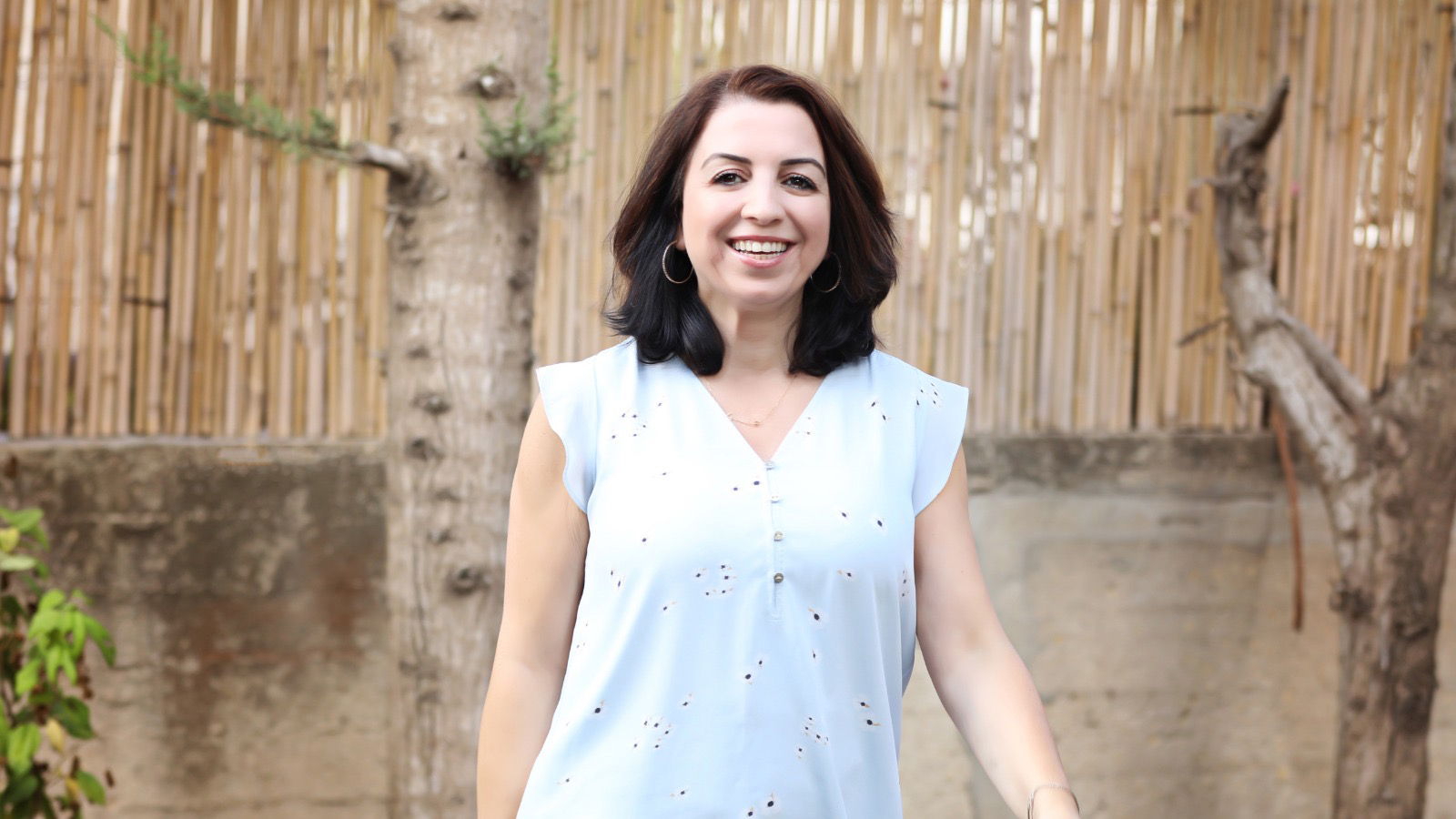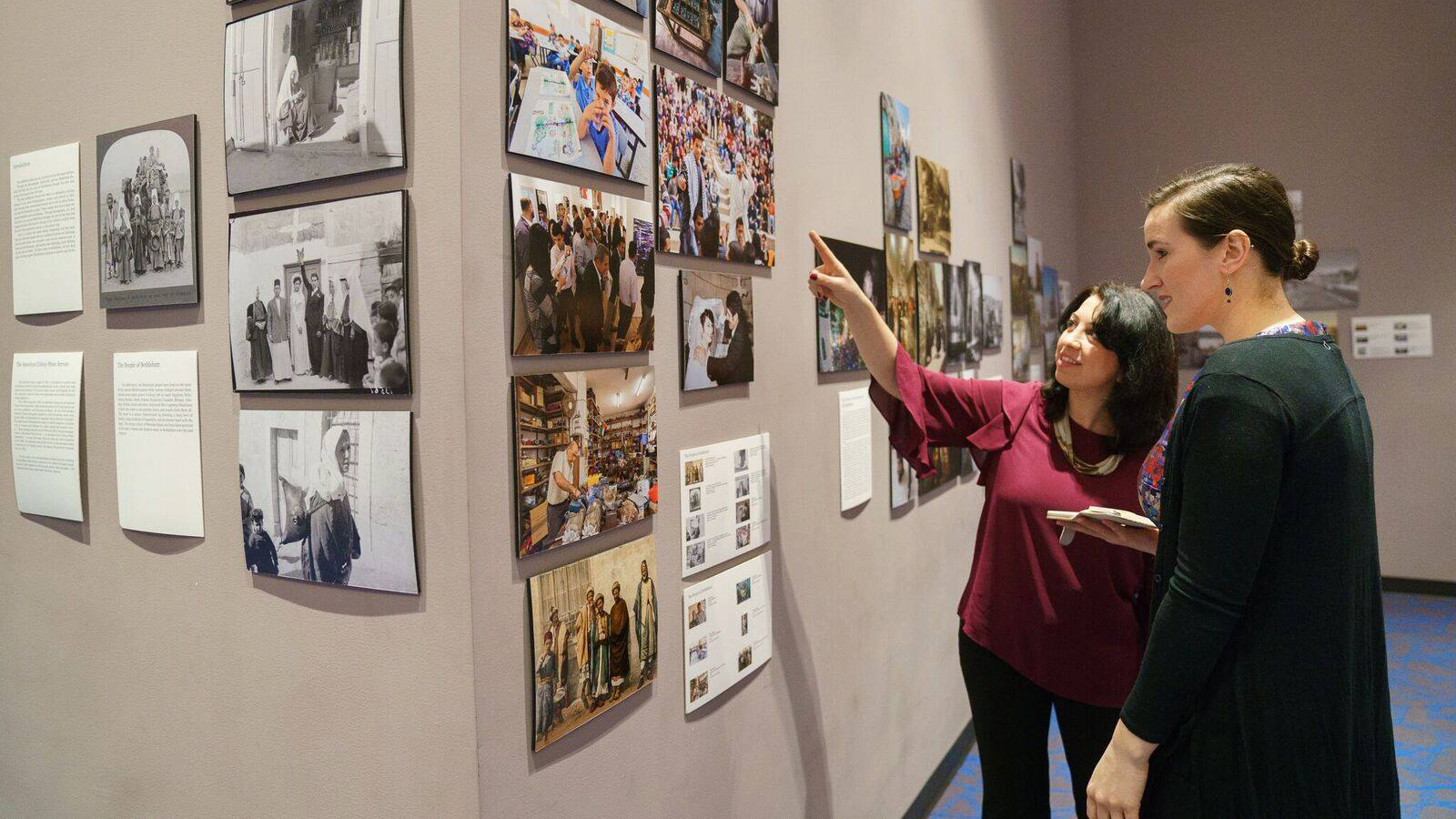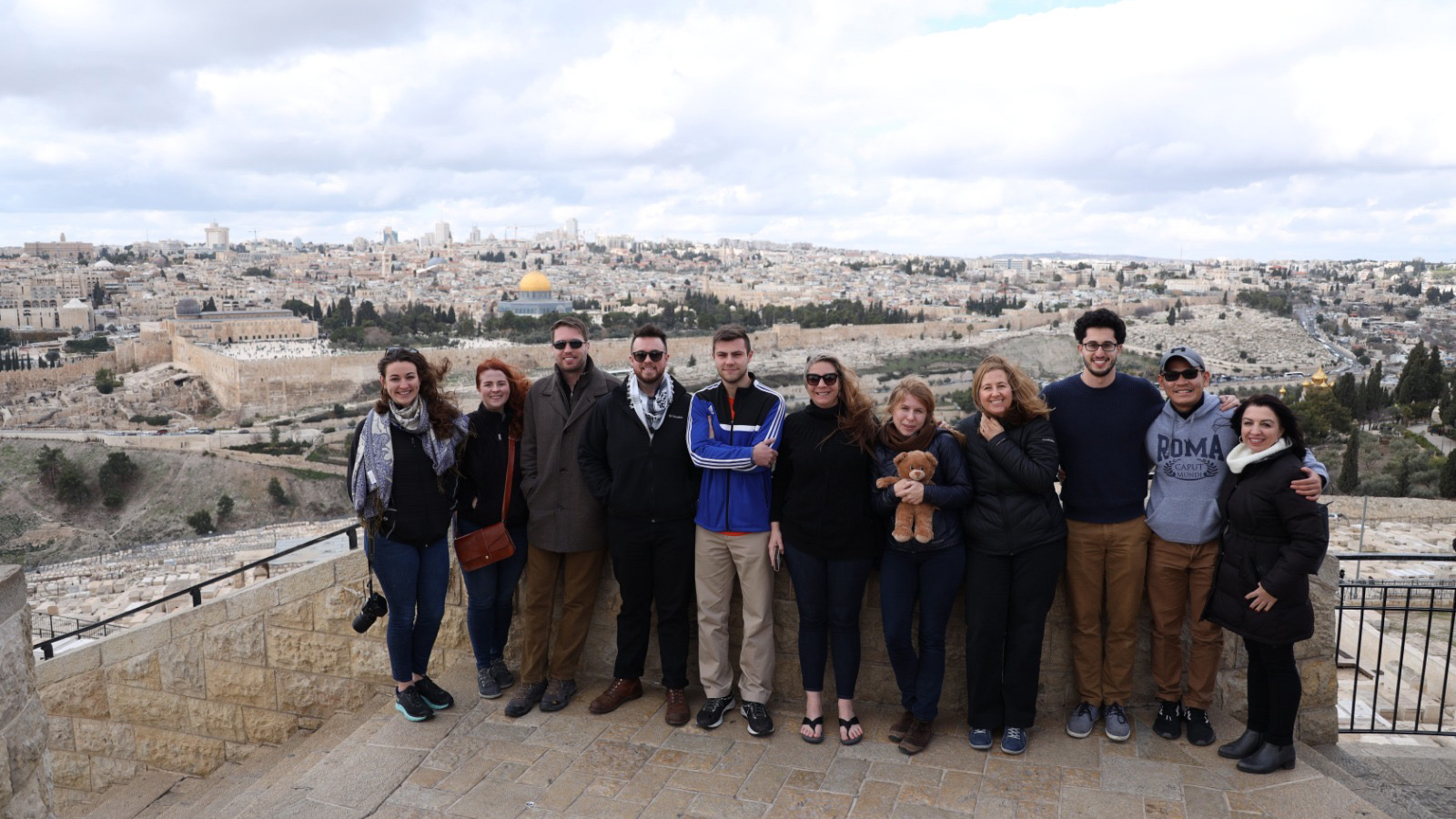
Fakhira Halloun holds two contradictory identities: She is Palestinian and an Israeli citizen.
It wasn’t until she began facilitating peace dialogues between Israelis and Palestinians in Jerusalem in 2000, that she realized Palestinian citizens of Israel could be the missing link in bridging ties between the two groups.
“Palestinian citizens of Israel have an important role to play in solving the conflict,” said Halloun, a 2019 PhD graduate of George Mason University’s Carter School for Peace and Conflict Resolution. “We know the mindset of the Palestinians in the West Bank and share the same national identity and culture; at the same time, we know the Jews in Israel because we live with them and a lot of relationships are built there.”
That realization inspired her studies at Mason and life goal of bringing about peace, she said.
After graduating from Mason, Halloun returned to Jerusalem, where she works as a civil society and peacebuilding consultant at the Office of the United Nations Special Coordinator for the Middle East Peace Process.
“This was my dream work,” Halloun said. “I’m helping civil society organizations engaged in peacebuilding work on both sides to reexamine and redefine their work in order to make a difference.”
Though she is overseas, Halloun’s impact in the Washington, D.C., area remains.
Halloun was part of a team that established the D.C.-based Museum of the Palestinian People, which highlights the history, identity, culture and achievements of Palestinians.

Halloun has also stayed connected to Mason.
Since 2019, she has been co-teaching a study-abroad course with professor Marc Gopin that takes students to Israel and Palestinian territories to understand the conflict from both sides.
It’s an enlightening course, Halloun said, and one she also took as a student.
“Fakhira is an extraordinary peacemaker who understands intellectually and personally the power of compassion and the heart to heal wounds of war and conflict,” Gopin said. “She combines that with reasoning and strategy to build bridges across lines of adversaries.”
“I brought my passion, commitment and persistence to impact my reality, but professors like Dr. [Kevin] Avruch and Dr. Gopin equipped me with a deep lens in conflict resolution through their knowledge, analysis and approaches to understand,” Halloun said. “I couldn’t be successful now where I work in the UN without their contribution to who I am.”
Creating a better future is Halloun’s top goal, she said. According to her professors, she has what it takes.
“If peace with justice is ever to have a chance, it will be people like Fakhira—on all sides—who will commit to seeing it through, and bring it about,” Avruch said.

